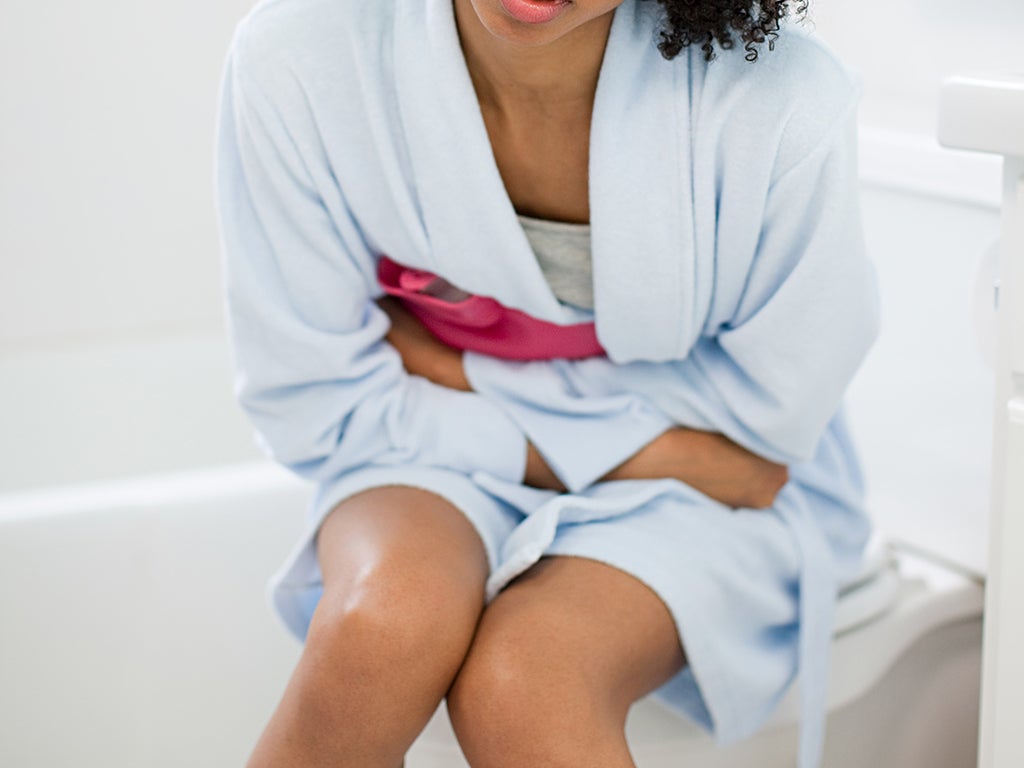Endometriosis is more than just 'period pain' for women
Women with endometriosis commonly experience very painful periods and painful sex which can lead to infertility - but there's a long and worrying delay in diagnosis

Your support helps us to tell the story
From reproductive rights to climate change to Big Tech, The Independent is on the ground when the story is developing. Whether it's investigating the financials of Elon Musk's pro-Trump PAC or producing our latest documentary, 'The A Word', which shines a light on the American women fighting for reproductive rights, we know how important it is to parse out the facts from the messaging.
At such a critical moment in US history, we need reporters on the ground. Your donation allows us to keep sending journalists to speak to both sides of the story.
The Independent is trusted by Americans across the entire political spectrum. And unlike many other quality news outlets, we choose not to lock Americans out of our reporting and analysis with paywalls. We believe quality journalism should be available to everyone, paid for by those who can afford it.
Your support makes all the difference.Why does a disease which causes pain and infertility, and which affects around 10 per cent of UK women, take up to ten years to diagnose?
Endometriosis is common and debilitating. Deposits of tissue resembling the lining of the womb are left in places they would not normally occur. The ovaries, tubes and walls of the pelvis are common targets. The bladder and bowel can be affected and, on rare occasions, far-flung body parts such as the liver can be involved. With every period the deposits bleed, setting off a vicious cycle of inflammation and scarring.
Women with endometriosis commonly experience very painful periods and painful sex. Some will also have pelvic pain which can last throughout the cycle. Bowel symptoms, such as bloating and diarrhoea, are common and are often put down to irritable bowel syndrome. Symptoms of bladder irritation are experienced by two-thirds of sufferers. Fertility is often reduced. In advanced cases, scarring in the pelvis makes it difficult for an egg and sperm to meet and fertilise. Even in mild cases, a cocktail of inflammatory substances in the pelvis can be toxic to eggs and embryos.
The daily effects of living with chronic illness, including managing pain and associated fatigue, extend to all areas of women’s lives. Depression and anxiety are very common. The impact on relationships and sex, plans for a family, and career and productivity, can be immense. To add further difficulty, many will have a long and difficult journey towards diagnosis and proper management, with multiple attendances at their GP and A&E.
Some will have been told outright, or by implication, that they are simply not managing the normal business of being a woman. From a medical point of view, they can be considered challenging patients, because they attend frequently and never seem to get better.
Why is this difficult to talk about?
There are a number of reasons for the long delay in diagnosis. Firstly, endometriosis touches on a number of issues which are considering challenging, if not exactly taboo, in our culture. It is a disease of women – and one which involves direct discussion of sex, periods and fertility. For many women, it also involves chronic pain, another difficult topic. Secondly, young women may be told, by parents and doctors, that period pain is a normal part of the experience of being a woman. Thirdly, classical teaching for doctors has been that endometriosis is a disease of older women. As a result, it was not something which was usually considered a problem in teenagers and young women.
How, then, can we improve things for this large and somewhat disenfranchised group of patients? In recent years, the growing evidence base around endometriosis has started to improve our understanding. We know that it can and does present in young women, and indeed that it may be aggressive at this stage. We now know that it is associated with other health problems such as asthma and eczema, and that it seems to also be linked with more serious autoimmune problems, such as inflammatory bowel disease. There seems to be a genetic link – and it is more likely where a family member are also affected.
With this improved knowledge comes the power to recognise and to treat earlier. The key message for women and doctors is that disabling period pain is not normal. Women who are routinely struggling with severe period pain or pain during sex should seek medical advice.
Doctors who are considering the diagnosis should then refer women to a gynaecologist with a special interest in endometriosis, or, ideally, to a specialist treatment centre. To diagnose endometriosis properly, a small operation known as a laparoscopy is needed. Patches of endometriosis can be treated surgically, or through hormonal medical treatments, such as the pill. Women can connect with other women through contact with an active network of support groups.
Through better recognition of the common symptoms, women can receive a timely diagnosis and can then start to consider their management options. Only then will we start to improve the long diagnostic delay and quality of life for women with endometriosis.
Jenny Johnston is an Academic GP at Queen's University Belfast
nullThis article was originally published on The Conversation. Read the original article.
Join our commenting forum
Join thought-provoking conversations, follow other Independent readers and see their replies
Comments